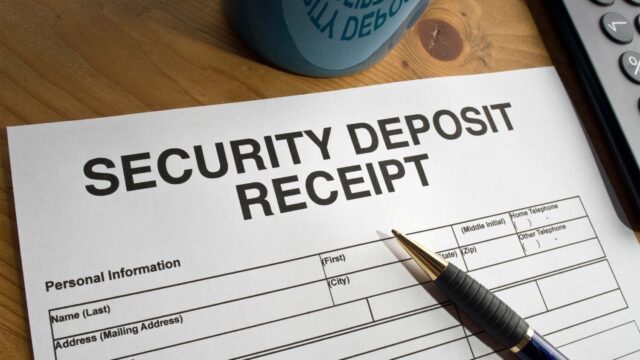
People often oversimplify investing in rental property by asserting that it’s all about numbers. Granted, it’s vital to dial in the financials to ensure you have healthy cash flow and ROI.
But you also have to account for the softer side of real estate investing – in particular, the challenge of finding good tenants. If you don’t have solid and dependable renters in your spaces, no cash flow equation will pencil out.
What Makes a Good Tenant?

It is the key to realizing the potential of your rental property investment. Do you know what makes a good tenant?
The answer is fairly simple. You want someone who possesses the following three qualities:
- Pays on time. Payment issues are one of the biggest concerns for a landlord. A good tenant pays on time and in full every single month. He or she won’t make excuses or give you an array of sob stories. Great tenants simply fulfill their duties.
- Takes care of your property. A good tenant takes care of your property and treats it like her own. He doesn’t intentionally damage anything or subject your spaces to excessive wear and tear. If they notice an issue, they bring it to your attention immediately so you can fix it right away and avoid bigger problems in the future.
- Long-term potential. Ideally, you want tenants who are likely to re-up their lease and stick around for one, two, or even three-plus years. This reduces the frequency of turnover (which is expensive). It also makes your job easier, since you don’t have to repeatedly search for new good tenants to replace the ones you already have.
If you can find someone who pays on time, takes care of the property, and has long-term potential, that’s all you need. Everything else is secondary.
6 Tips for Finding Good Tenants
Knowing what makes a good tenant is not hard. Actually finding one can be far more challenging. If you know how and where to look, though, it’s not nearly as difficult as it might seem.
Here are four solid tips.
1. Create a Good Listing

Most landlords focus incorrectly on where to promote their rental property listing. The primary emphasis should be on creating a good listing that pre-qualifies prospective applicants.
Your goal is not to collect as many applications as possible. What you want is a smaller pool of tenants that are all highly promising from which to choose. This makes your job a lot easier.
A good listing is detailed and clear. It sets the proper expectations by outlining the price, location, and amenities. Ideally, it also includes lots of photos.
That’s because you don’t want there to be any surprises when a potential tenant comes for the showing. Everyone should already know exactly what the place looks like.
It’s also a good idea to include some sort of “secret phrase” in the listing to ensure people read it with care. For example, you might include a line in the middle of the listing that states, “Send your application to xyz@gmail.com and use the word caterpillar in the subject line.”
This will enable you swiftly to weed out anyone who doesn’t pay attention to details.
2. Tap Your Network

The most effective way to locate a good tenant is to tap into your personal network of people you trust. Consult friends, family, neighbors, co-workers, and past tenants by letting those people know you’re looking for a new tenant.
What if you don’t have a big personal or professional network? You might want to hire a property management service to handle the property marketing and tenant screening on your behalf. These professionals typically have large existing networks and plenty of resources. You can click here to learn more about what services property management services provide.
3. Check These 3 Things

When you screen the applicants, there are three specific checks you’ll want to run:
- Background check
- Credit check
- Income verification check
If these three items are solid, then there’s a strong likelihood the applicants are qualified.
4. Speak With Past Landlords

Plenty of tenants manage to look good on paper. The real question is: Do they live up to their paperwork? The best way to verify they do is to speak with the prospective tenant’s current landlord and at least one previous landlord. This will give you a pretty good idea of how they are as renters.
5. Meet in Person

You can run an extensive search on someone based on the information they supply in their application. You can even call up multiple references and check financial statements.
But until you meet an applicant in person (face-to-face), you can never be sure you’re making the right decision.
For better or worse, people often come across differently in person. Someone might seem like a borderline good tenant on paper, but you meet them and instantly get a very trustworthy, honest and down-to-earth vibe. Or someone can seem like the perfect tenant on their application, but you get a slimy feeling when you’re around them.
6. Require a Sizeable Security Deposit

Most landlords ask for the equivalent of one month’s rent as a security deposit. And while that’s usually adequate, you can always increase the amount of the deposit (up to the legal amount) to ensure you’re getting only the most serious tenants.
The amount you’re legally able to charge is dependent on the security deposit limits in your state. Some states have specific caps (usually one or two months), while other states have no statutory limit. For states with no limit, you can choose a reasonable amount. (Just know that a high deposit will turn most renters away. Only do this if you’re confident you’ll be able to find a tenant.)
Get the Best Tenant Every Time
When you know what to look for in a good tenant and have a strategy for how to find them, managing your rental property investment becomes a much simpler task. Keep these suggestions in mind the next time you search for a tenant. They’ll serve you well!














